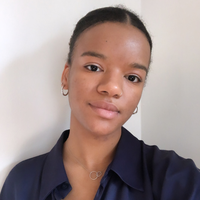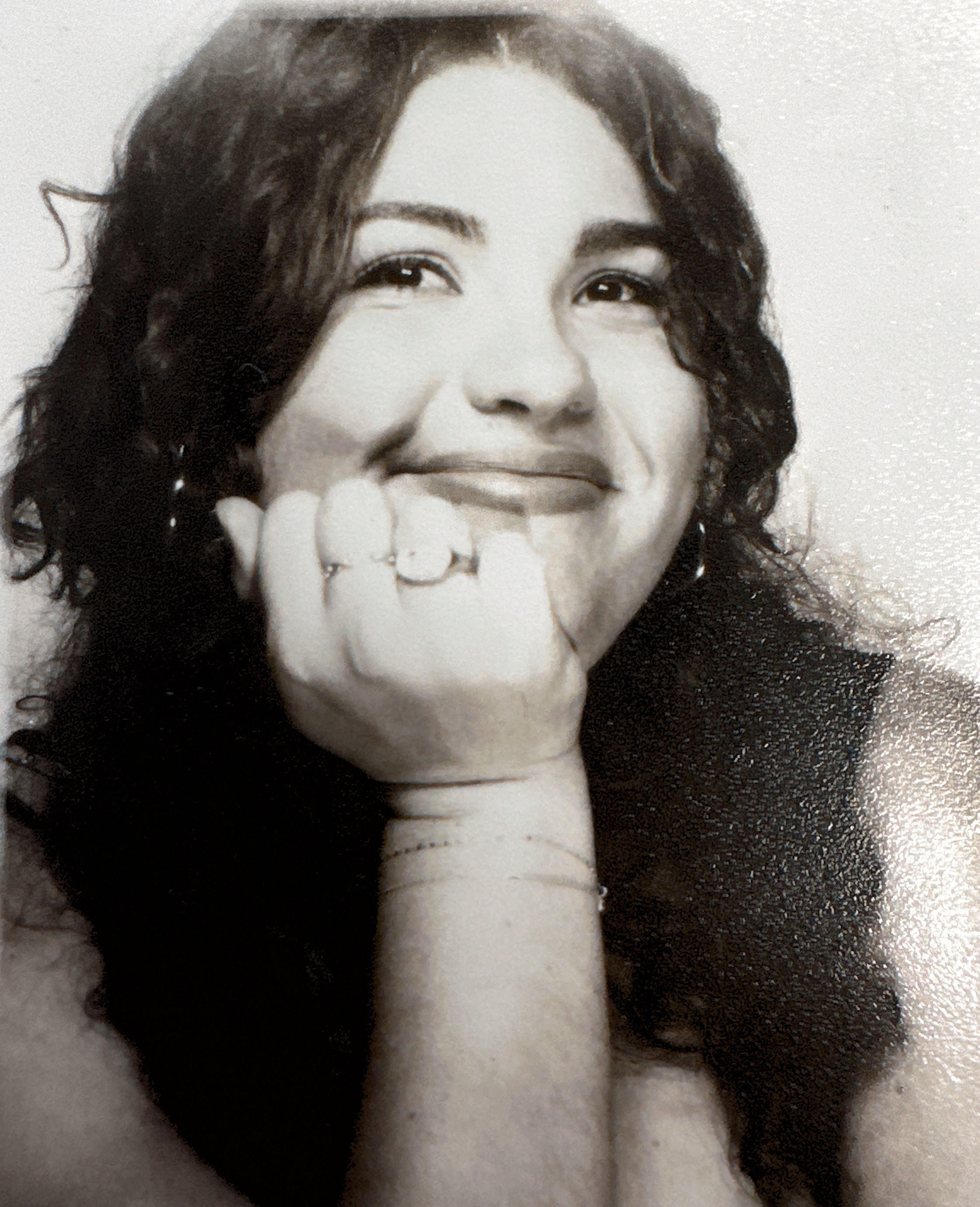23 Black History Heroes You May Never Have Heard Of
These are life stories worth knowing.
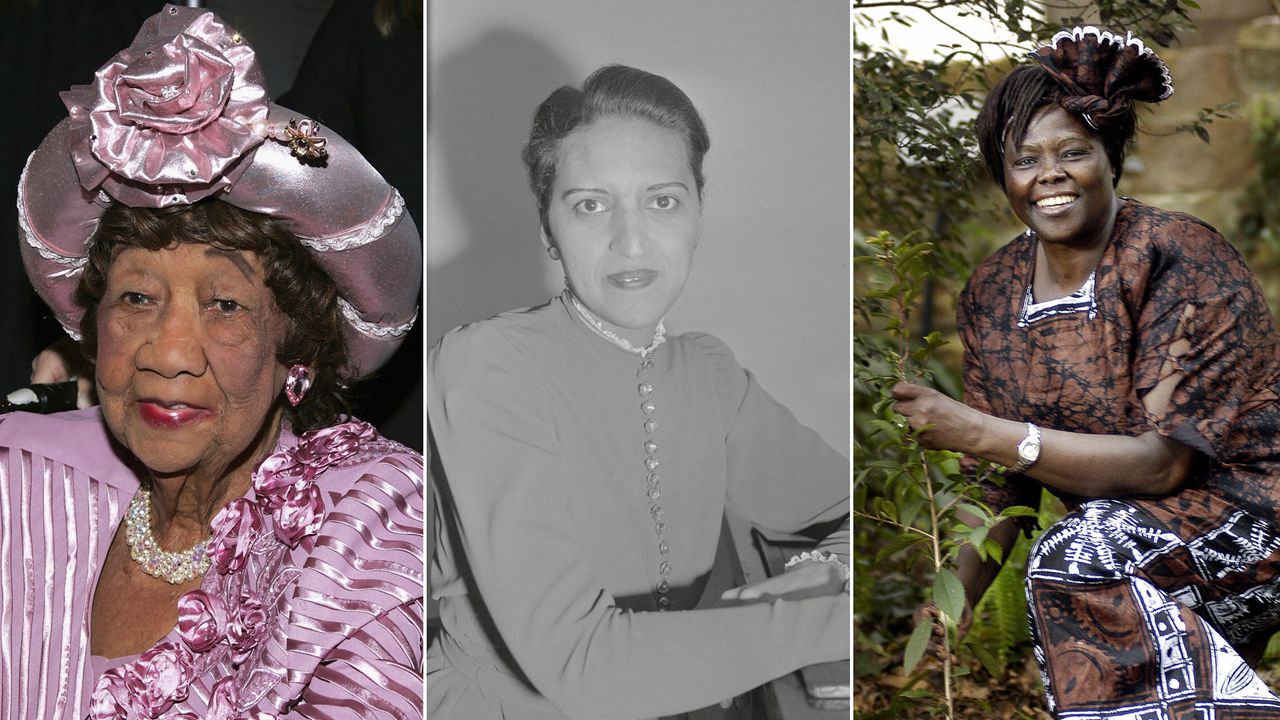
Brooke Knappenberger
During Black History Month, and every other month, we must take the time to honor the role and achievements of African-American heroes in United States history. We all know about groundbreaking activists like Martin Luther King Jr., Rosa Parks, and Harriet Tubman from our history books, but there are many more unsung heroes worth celebrating—particularly Black women. These icons, many of which were overlooked at the time and continue to be sidelined today, transformed our country. Here, we rounded up just some of the African-American women whose tireless efforts changed everything, and who never got the credit they deserve.
If you're looking for more resources to further educate yourself this month and beyond, we've gathered a list of must-reads. We've got movie lovers covered, too, with the best Black history movies and documentaries.
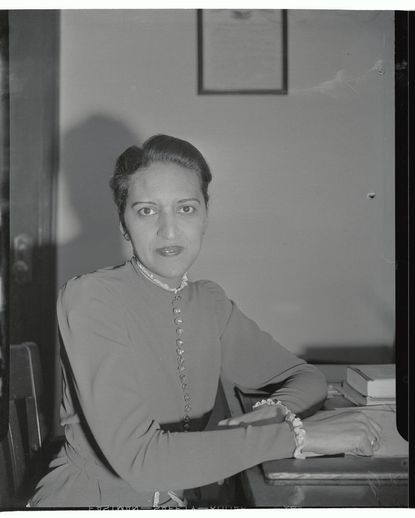
Jane Bolin
Jane Bolin became the nation's first Black woman judge in 1939. She was the first Black woman to graduate from Yale Law School, and would serve on New York's Family Court for four decades. Besides dealing with domestic cases, she worked to stop probation officers from getting assignments based on the color of their skin. During her career, she also worked with Eleanor Roosevelt to create a program that would intervene to stop young boys from committing crimes.
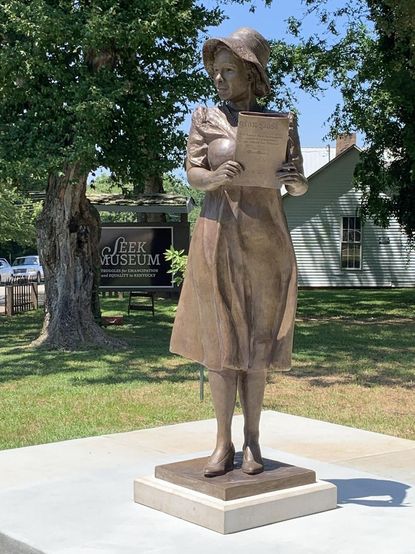
Alice Allison Dunnigan
Alice Allison Dunnigan was the first African-American female White House correspondent. She was also the first Black female member of the Senate and House of Representatives press galleries. Her love for writing began when she was 13, penning one-sentence pieces for the Owensboro Enterprise. She became the chief of the Associated Negro Press in 1947, which would allow her a year later to become the first female African American to follow a President's campaign out on the road. While she had to pay her way to cover Harry S. Truman on his Western campaign trail, she would finally receive the respect she deserved when John F. Kennedy was elected. She would serve as an education consultant of the President's Committee on Equal Employment Opportunity until 1965.
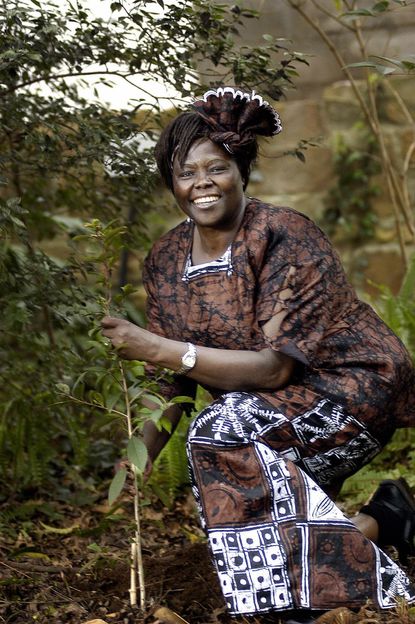
Wangari Maathai
Wangari Maathai became the first Black woman to win the 2004 Nobel Peace Prize for her environmental work in Kenya. She was also the first woman in East and Central Africa to earn a doctorate degree. Maathai served as the chairman for six years on the National Council of Women in Kenya, and introduced the idea of accomplishing the largest tree-planting campaign in Africa—the Green Belt Movement. The organization has planted over 51 million trees in Kenya since its founding in 1977.
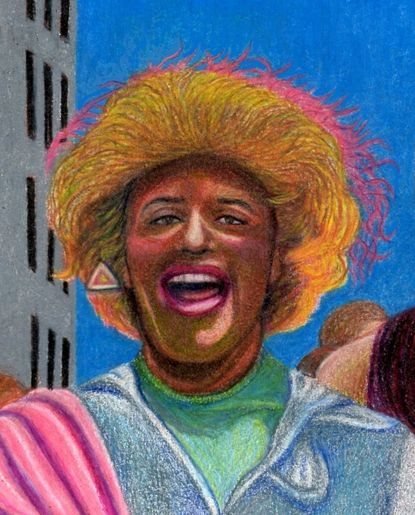
Marsha P. Johnson
Marsha P. Johnson was an LGBTQ activist and trans woman who was one of the first drag queens to walk into the Stonewall Inn. In addition to being a drag performer, Johnson co-founded the Street Transvestite Action Revolutionaries organization with Sylvia Rivera, according to CNN. The organization housed and fed homeless youth that identified as queer, as well as sex workers in the lower part of New York City, said USA TODAY. Johnson also modeled for Andy Warhol, performed with the drag group Hot Peaches, and was an AIDS activist with ACT UP for five years.
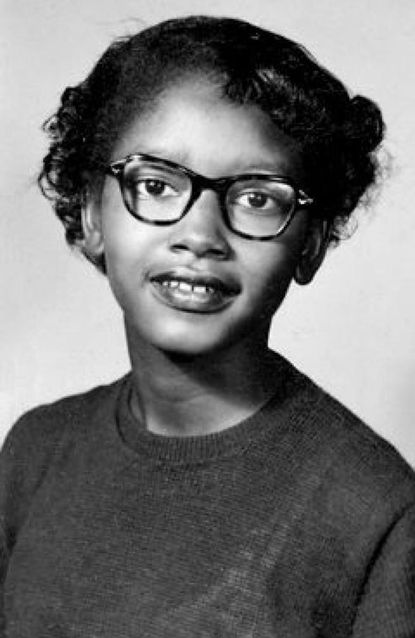
Claudette Colvin
Nine months before Rosa Parks refused to give up her seat to a white passenger on a bus in Montgomery, Alabama, then 15-year-old Claudette Colvin did the same. On March 2, 1955, Colvin was taking the bus home from high school when the driver ordered her to give up her seat, according to NPR. Colvin refused, saying she paid her fare and it was her constitutional right, but was then arrested by two police officers. Colvin later became the main witness in the federal lawsuit Browder v. Gayle, which ended segregation on public transportation in Alabama.
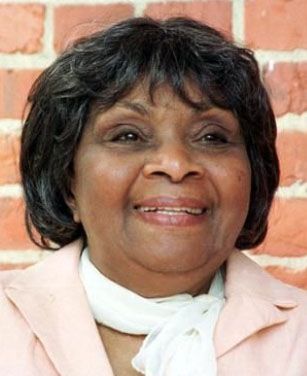
Irene Morgan Kirkaldy
And before both Claudette Colvin and Rosa Parks, there was Irene Morgan Kirkaldy. In July 1944, Morgan Kirkaldy was arrested after she refused to give up her bus seat to a white passenger in Virginia. She was convicted in a County Circuit Court, but appealed the decision to the Virginia Supreme Court and later to the Supreme Court. With the help of lawyers from the NAACP, including Thurgood Marshall, the Supreme Court ruled in favor of Morgan Kirkaldy on June 3, 1946. While Southern states largely ignored the ruling, Morgan Kirkaldy's case was a pioneer in civil rights law. Morgan Kirkaldy received the Presidential Citizens Medal from President Bill Clinton in 2001.
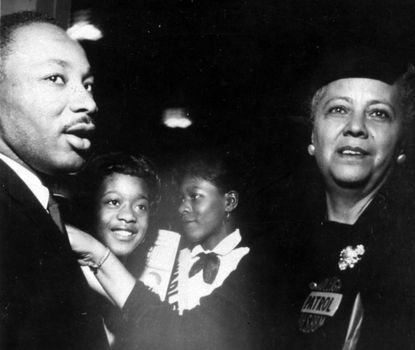
Anna Arnold Hedgeman
Hedgeman was an advocate who worked with religious organizations and within the government to mobilize the civil rights movement. Hedgeman became the first African-American graduate of Hamline University in 1922. She later worked for a number of religious organizations, most notably the Young Women's Christian Association. Hedgeman also held various roles in the government, including working on Harry S. Truman's reelection campaign in 1948 and serving in the cabinet of New York Mayor Robert F. Wagner from 1954 to 1958, the first African-American woman to do so. Hedgeman was also instrumental in the planning of the historic March on Washington in 1963.
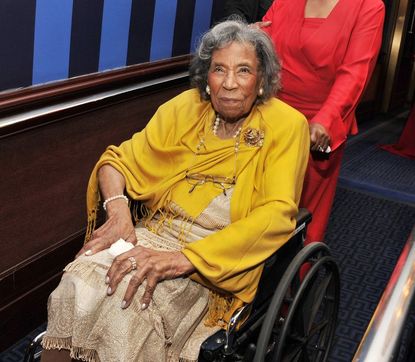
Amelia Boynton Robinson
Boynton Robinson has been recognized for her tireless civil rights advocacy in recent years—including a portrayal in 2014's Selma —but many may not know just how pivotal a figure she was. Boynton Robinson began her civil rights activism in the 1930s, when she started advocating for voting rights after becoming one of the few African-American women registered to vote in Selma, Alabama. Boynton Robinson became the first African-American woman in Alabama to run for Congress in 1964 and the following year, she helped Martin Luther King Jr. plan the march from Selma to Montgomery, Alabama for March 7, 1965, now known as "Bloody Sunday." Boynton Robinson and the roughly 600 demonstrators were forcefully attacked by state troopers with tear gas, billy clubs, and whips. Boynton Robinson was hospitalized after the march and a horrific photo of her injuries was widely circulated. Later, in 1965, Boynton Robinson was invited to the White House when President Lyndon B. Johnson signed the Voting Rights Act, and in 1990, she received the Martin Luther King Jr. Freedom Medal.
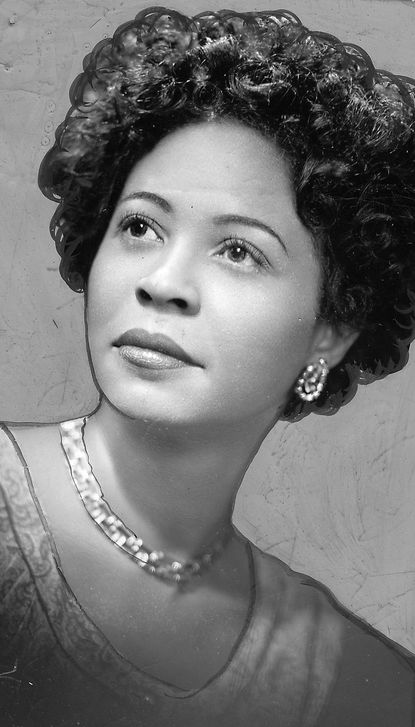
Daisy Bates
Bates was a civil rights activist best known for her work on behalf of the Little Rock Nine. Bates and her husband founded the Arkansas State Press, a weekly African-American newspaper that advocated for civil rights. In 1952, Bates became the president of the NAACP's Arkansas chapter and in 1957, Bates fought for the Little Rock Nine, the nine Black students who were attending an all-white school as part of the school's desegregation. Bates escorted and advocated for the students amid intense opposition, and is honored by the state of Arkansas with a state holiday on the third Monday of February.
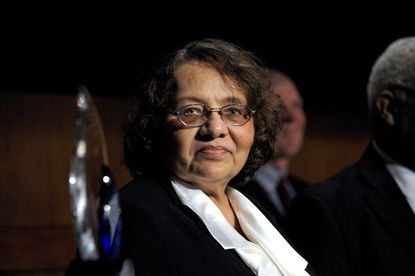
Diane Nash
Of the many accomplishments Nash has made in her lifelong commitment to civil rights activism, her most famous contributions include her work organizing and leading Freedom Rides and sit-ins. Nash, who was born in Chicago, got involved with the civil rights movement when she enrolled at Fisk University in Nashville in 1959. In April 1960, she helped found the Student Nonviolent Coordinating Committee (SNCC). Nash also coordinated the Nashville Student Movement Ride, which was part of the Freedom Rides in 1961, coordinating between her fellow students, the media, and the Department of Justice. She engaged in sit-ins herself, even spending time in jail in February 1961 in solidarity with the "Rock Hill Nine," nine students that were imprisoned after a sit-in. Nash also played a crucial role in the desegregation campaign in Birmingham in 1963, and received a Rosa Parks Award from the SCLC along with her husband in 1965.
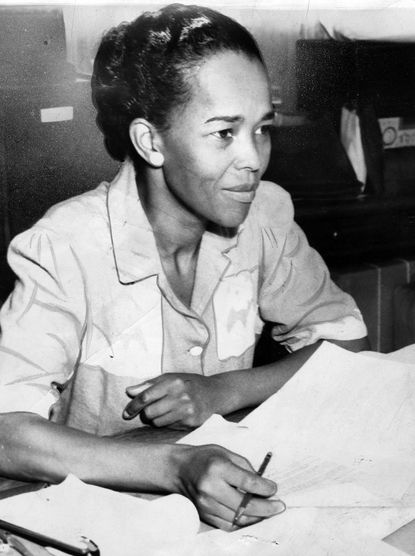
Ella Baker
Baker was a civil rights activist who worked for a number of organizations throughout her lifetime. After graduating as valedictorian from Shaw University in North Carolina, Baker moved to New York City to help start the Young Negroes Cooperative League. She started working for the NAACP in 1940, and co-founded the organization In Friendship to fight against Jim Crow laws in 1955. In 1957, she was asked to help organize Martin Luther King Jr.'s Southern Christian Leadership Conference and also helped form the Student Nonviolent Coordinating Committee, SNCC, which became one of the biggest human rights advocates in the country.
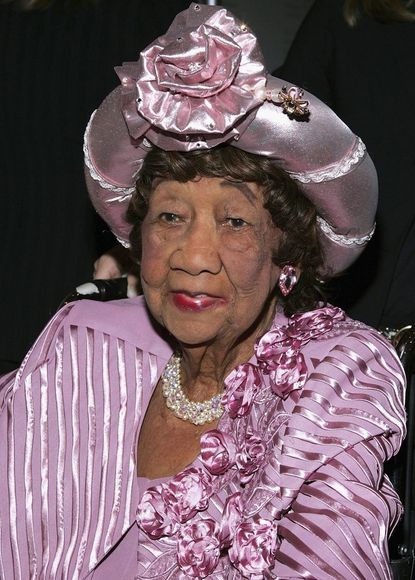
Dorothy Height
Height has been called the matriarch of the civil rights movement and often worked outside of the public eye. After receiving two degrees from New York University in the 1930s, Height worked for the New York City Welfare Department and then became the assistant executive director of the Harlem Y.M.C.A. She was involved in anti-lynching protests, brought public attention to the exploitation of African-American women working in "slave markets," and escorted First Lady Eleanor Roosevelt to the National Council of Negro Women, a council she served on for more than 40 years. In the 1950s, she lobbied President Dwight D. Eisenhower to take an aggressive stance on school desegregation issues. Height also worked with Martin Luther King Jr. and she stood on the platform with as he delivered his famous "I Have a Dream" speech in August 1963.
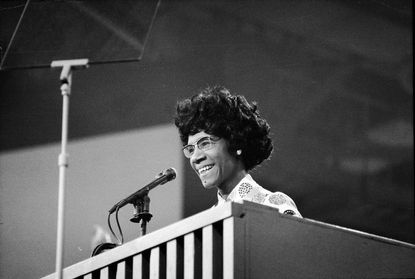
Shirley Chisholm
Chisholm was a pioneer for African-American women holding major roles in the government. Chisholm first served as an educational consultant for New York City's bureau of child welfare and ran for New York State Assembly in 1964. In 1968, Chisholm was elected as the first African-American Congresswoman, and later became one of the founding members of the Congressional Black Caucus. Chisholm made history once again in 1972 when she became the first African-American woman of a major political party to run for the Democratic party nomination.
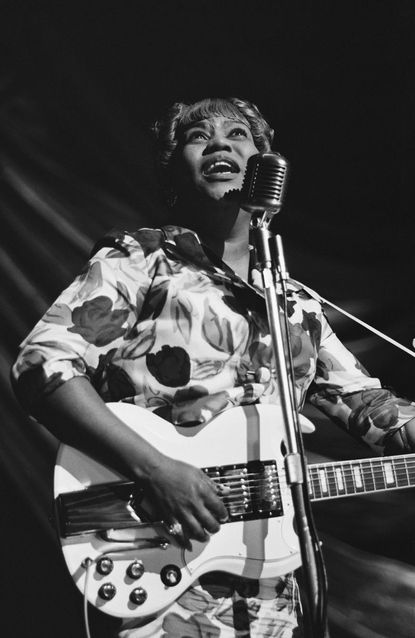
Sister Rosetta Tharpe
Before Brittany Howard, there was Sister Rosetta Tharpe, a queer Black woman from Arkansas. Born in 1915 to cotton pickers Katie Bell Nubin and Willis Atkins, she and her mother settled in Chicago in the 1920s, where they performed religious concerts. On the scene before Johnny Cash and Little Richard, she spent the late 1930s and 1940s experimenting with her distinctive guitar style that fused jazz, blues, and gospel music. After two marriages, Tharpe met her partner Marie Knight in the 1940s and the duo collaborated extensively together, although they later split. Known as the Godmother of Rock ‘N’ Roll, Tharpe influenced Elvis, Chuck Berry, Aretha Franklin, and countless others.
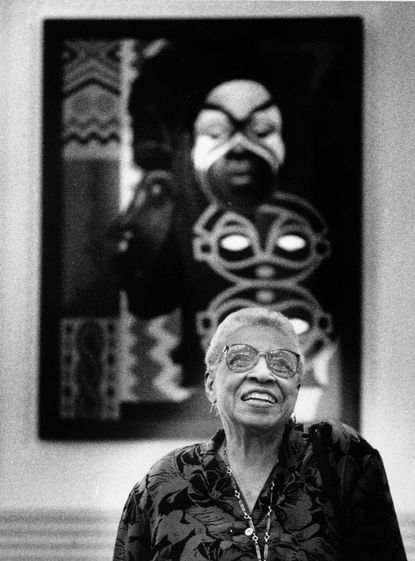
Loïs Mailou Jones
Lois Mailou Jones was a highly regarded artist and teacher whose career spanned seven decades. Influenced by the Harlem Renaissance movement, Jones broadened the idea of Black painting and scholarship. Born in Boston in 1905, Lois setted in Washington D.C. where she taught at Howard University. Through countless international trips and research into a variety of art forms, Jones broadened the idea of what Black art can be. Known as one of the first Black artists to expand their practice beyond portraiture, Jones influenced generations of Black modernists.
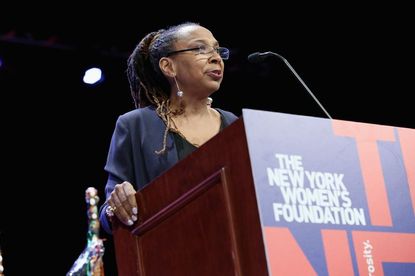
Kimberlé Williams Crenshaw
Kimberlé Williams Crenshaw is a lawyer, activist, scholar and philosopher who developed the much-debated theory of intersectionality. Coined in 1989, intersectionality describes how class, race, gender, and other identifiers “intersect” and overlap, potentially causing their effects to compound. While the right weaponized the term in an effort to silence marginalized groups, the idea of intersectionality has truly expanded our understanding of discrimination.
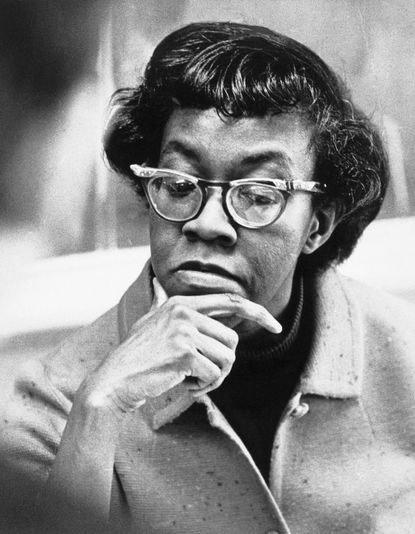
Gwendolyn Brooks
Although the Poetry Foundation calls Gwendolyn Brooks “the most highly regarded, influential, and widely read poets of 20th-century American poetry,” I only found her work through a recommendation from thriftbooks.com. That is to say, this Pulitzer Prize-winning poet–she is the first Black woman to earn this distinction–deserves a shoutout. Born in Topeka, Kansas in 1917, Brooks moved to Chicago at 5 weeks old and began writing through the encouragement of her mother. After winning her Pulitzer in 1950, she went on to serve as a poetry consultant for the Library of Congress and the poet laureate of the United States. Her work examined the ordinary lives of Black people, often reflecting her political consciousness and the ongoing struggle for civil rights.
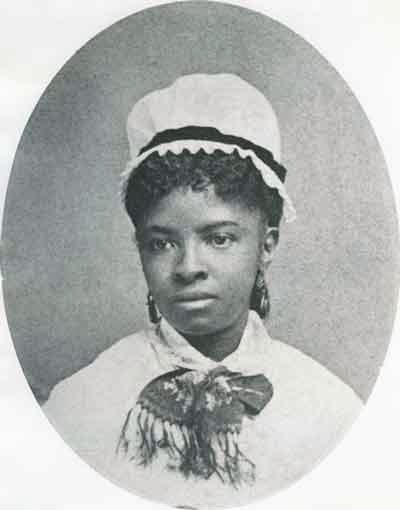
Dr. Rebecca Lee Crumpler
Dr. Crumpler was the first African-American woman physician in the United States. Born in 1831, Dr. Crumpler first worked as a nurse in Massachusetts between 1852 and 1860. She was accepted to New England Female Medical College and earned an M.D. in 1864. She practiced medicine in Boston and Richmond, Virginia, primarily working with the poor, who had limited access to medical care. In 1883, Dr. Crumpler published a renowned book, Book of Medical Discourses In Two Parts, which many believe is the first medical text written by an African-American author.
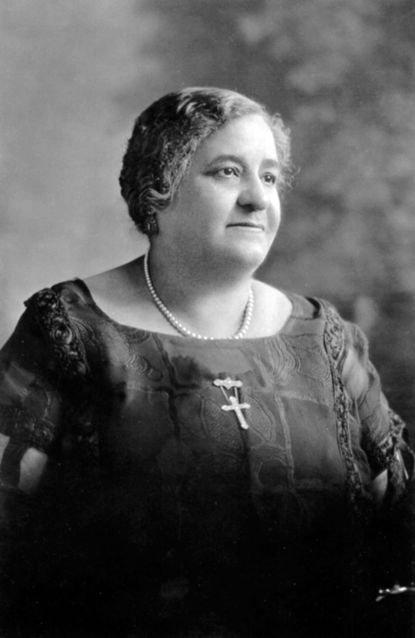
Maggie Lena Walker
Despite being born in poverty during the post-Civil War era, Maggie Lena Walker became one of the most influential women business leaders in U.S. history. After graduating high school at 16, Walker started working for the St. Luke organization. It was while at St. Luke that Walker noticed how Black people struggled to get loans from white-owned banks and sought to empower the through financial freedom. In 1903, she opened the St. Luke Penny Savings Bank, and became the first African American woman to charter a bank. The bank continued to thrive as the oldest continually African American-operated bank in the U.S. until 2009. Outside of her economic work, she held several executive positions in civil rights groups including the NAACP and the National Urban League.
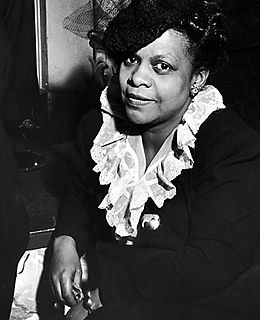
Eunice Hunton Carter
Organized crime in New York was running rampant during the 1920s and 30s, but Eunice Hunton Carter was able to make the connection between petty crime and business fraud, something law enforcement failed to do. After becoming the first Black woman to graduate from Fordham University Law School, and began her lengthy legal career. As assistant district attorney in New York City, Carter saw that prostitutes all had the same lawyers, bondsmen, and alibis after being arrested, leading her to realize prostitution was organized. After the arrest and questioning of 100 prostitutes, Carter's investigation led to the arrest of major crime boss Charles "Lucky" Luciano. She then became head of the D.A.'s Special Sessions Bureau in addition to volunteering for several civil rights groups.
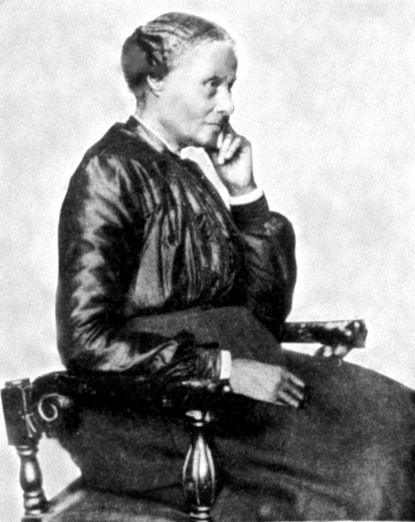
Mary Ellen Pleasant
Hailed as the "Mother of Civil Rights in California," Mary Ellen Pleasant was a Gold Rush-era millionaire who used her wealth to further the abolitionist movement. After the death of her first husband who was also an abolitionist and left her a large inheritance, Pleasant set out for San Francisco in 1852, the peak of the California Gold Rush. There she invested in real estate, railroads, restaurants, and boarding houses, building her fortune even more and employing Black people in the process. Later in life, she sheltered an escaped slave Archy Lee and was a financier for John Brown's raid on Harper's Ferry in Virginia. Historians also suggest she helped to establish California's Underground Railroad by helping other escaped slaves to freedom.
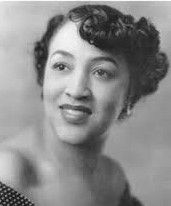
Mary Kenner
Without the genius of Mary Kenner, women everywhere would not have sanitation napkins, aka pads, as menstrual products. Born in 1912, Kenner spent her life inventing products to make lives easier. At an early age, Kenner had a keen eye for creating solutions and even invented a device to stop a door from squeaking in her home at age 6. In the 1920s, Kenner came up with the idea of a sanitation belt, which would be the precursor to today's sanitation pads, to hold a menstrual towel in place, but it wasn't until the 1950s that she would be able to afford the patent process. Racism prevented her from profiting off her invention, but she continued to invent solutions to everyday problems. Eventually, Kenner would be granted five patents, the most of any Black woman in U.S. history.
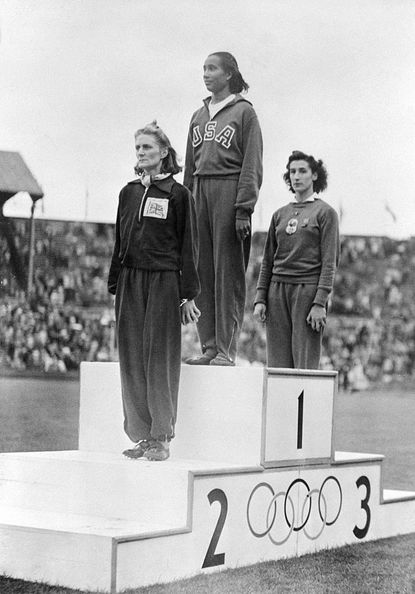
Alice Coachman
Before there was Serena Williams and Simone Biles, there was Alice Coachman, the first Black woman from any country to win a gold medal at the Olympics. Growing up in a segregated South, Coachman was discouraged by society and her father from playing sports and instead was prompted to be ladylike. Nonetheless, she continued to train, despite not having equal access to training facilities, and eventually caught the attention of the Tuskegee Institute in Alabama. There she was able to excel in track and field, and won the national title in the high jump event each year from 1939 to 1948. In 1948, she entered the Olympics and shattered the high jump record by clearing the 5 feet 6 1/8-inch bar, earning her gold. She later became inducted into nine halls of fame and served as an inspiration for Black female athletes after her.
Stay In The Know
Get exclusive access to fashion and beauty trends, hot-off-the-press celebrity news, and more.

Bianca Rodriguez is the Audience Development Manager at Future, covering fashion, beauty, and more for Marie Claire, Who What Wear US and Who What Wear UK. In addition to spearheading SEO content across brands—whether writing about wardrobe must-haves or strategizing how to make eye-catching content—she is also an avid reader with a deep love and knowledge for books of all genres. More often than not, you can find her lounging with a good book on the weekend.
- Brooke KnappenbergerAssociate Commerce Editor
-
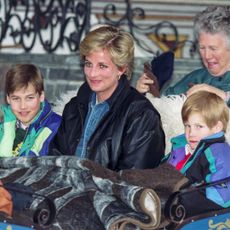 Harry Was Allegedly Crushed When William Received "Special Treatment"
Harry Was Allegedly Crushed When William Received "Special Treatment""Poor Harry's face across the table," Princess Diana's former butler recalled.
By Amy Mackelden Published
-
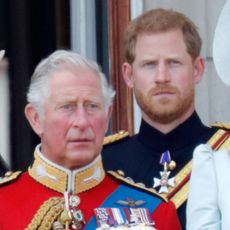 Prince Harry Wasn't Informed About King Charles's Hospitalization
Prince Harry Wasn't Informed About King Charles's Hospitalization"It looks like the duke only found out about his father's latest health update through the media."
By Amy Mackelden Published
-
 Jennifer Lawrence Styles a $7,500 Outfit With $100 Sneakers
Jennifer Lawrence Styles a $7,500 Outfit With $100 SneakersThe actress paired Prada and Celine with her $100 footwear.
By Amy Mackelden Published
-
 Black Lives Matter Quotes That Are Powerful, Informative, and Necessary
Black Lives Matter Quotes That Are Powerful, Informative, and Necessary"Racism is a visceral experience...It dislodges brains, blocks airways, rips muscle, extracts organs, cracks bones, breaks teeth. You must never look away from this."
By Katherine J. Igoe Published
-
 Being Estranged From My Mom Is Hard. Mother’s Day Makes It Harder
Being Estranged From My Mom Is Hard. Mother’s Day Makes It HarderIt’s high time to start representing the different types of mother-daughter relationships—or lack thereof—that exist during the holiday.
By Christina Wyman Published
-
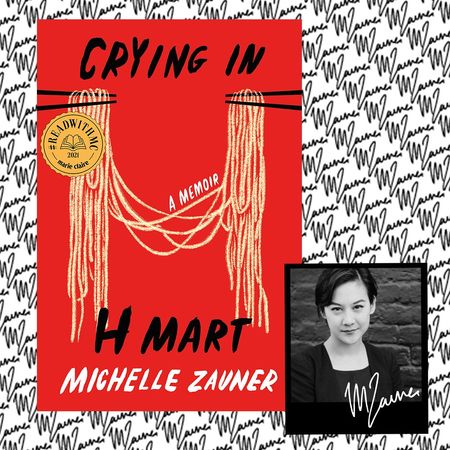 'Crying in H Mart' Is Our May Book Club Pick
'Crying in H Mart' Is Our May Book Club PickRead an excerpt from Michelle Zauner's memoir, here, then dive in with us throughout the month.
By Rachel Epstein Published
-
 To End Sexual Abuse in Churches, Dismantle Purity Culture
To End Sexual Abuse in Churches, Dismantle Purity CultureThe Christian church’s norms provide the perfect cover for sexual predators—and leave their victims feeling like the sinners.
By Leslie Goldman Published
-
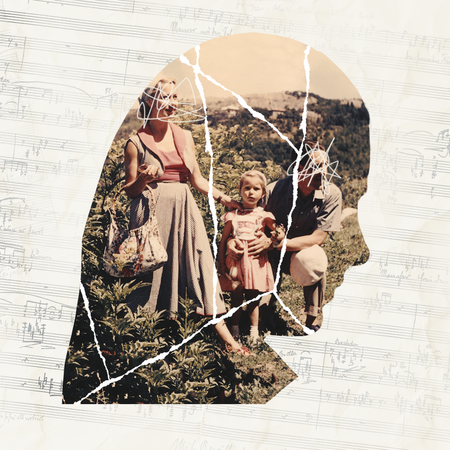 I Was Adopted by a Sex Offender
I Was Adopted by a Sex OffenderHow my stepfather's past changed my future.
By Sine Nomine Published
-
 Where Did All My Girlfriends Go?
Where Did All My Girlfriends Go?How To Even in our hyperconnected world, true friendship remain elusive for young women looking to rebuild their college-era squads.
By Maggie Bullock Published
-
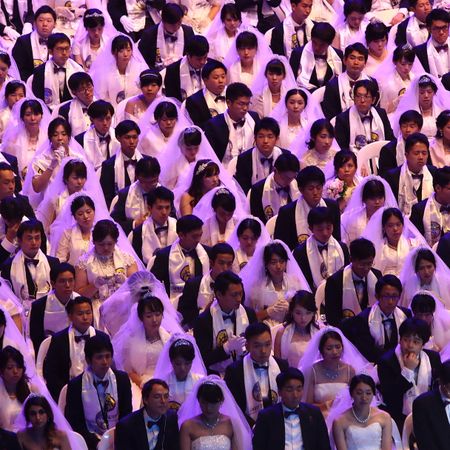 What It's Like to Grow Up in a Cult
What It's Like to Grow Up in a CultIn her new book, To the Moon and Back: A Childhood Under the Influence, Lisa Kohn describes her journey into and out of the infamous Unification Church.
By Megan DiTrolio Published
-
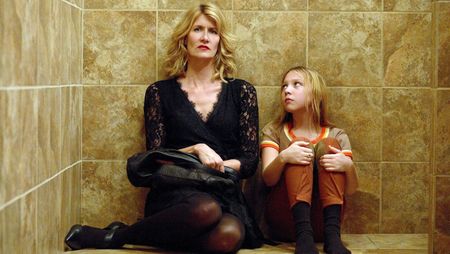 This Woman's True Story of Child Sexual Abuse Is Now a Movie Starring Laura Dern
This Woman's True Story of Child Sexual Abuse Is Now a Movie Starring Laura DernWriter-director Jennifer Fox on confronting her murky past for her new autobiographical HBO Film, The Tale.
By Abigail Pesta Published
